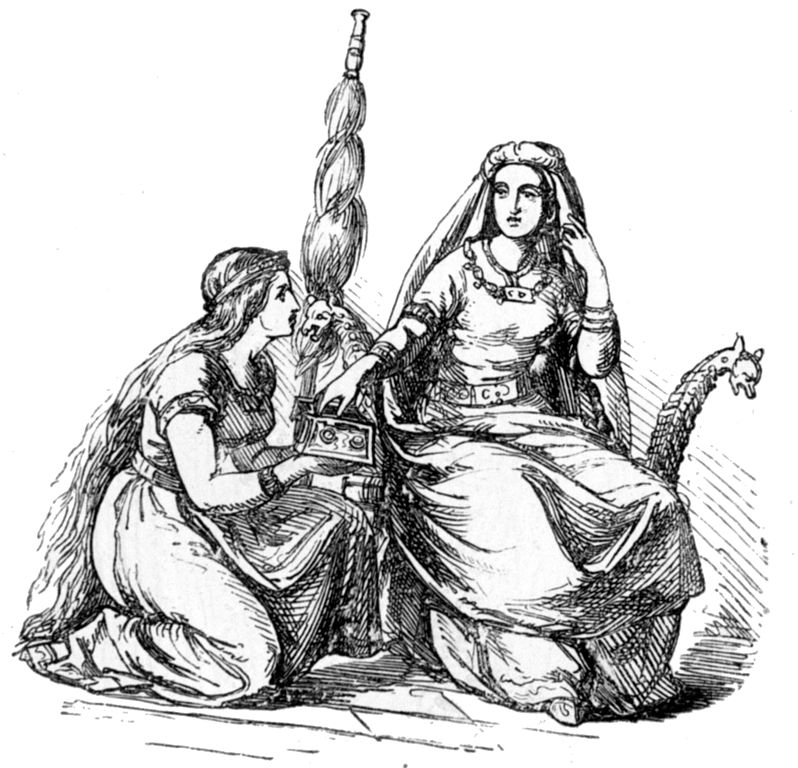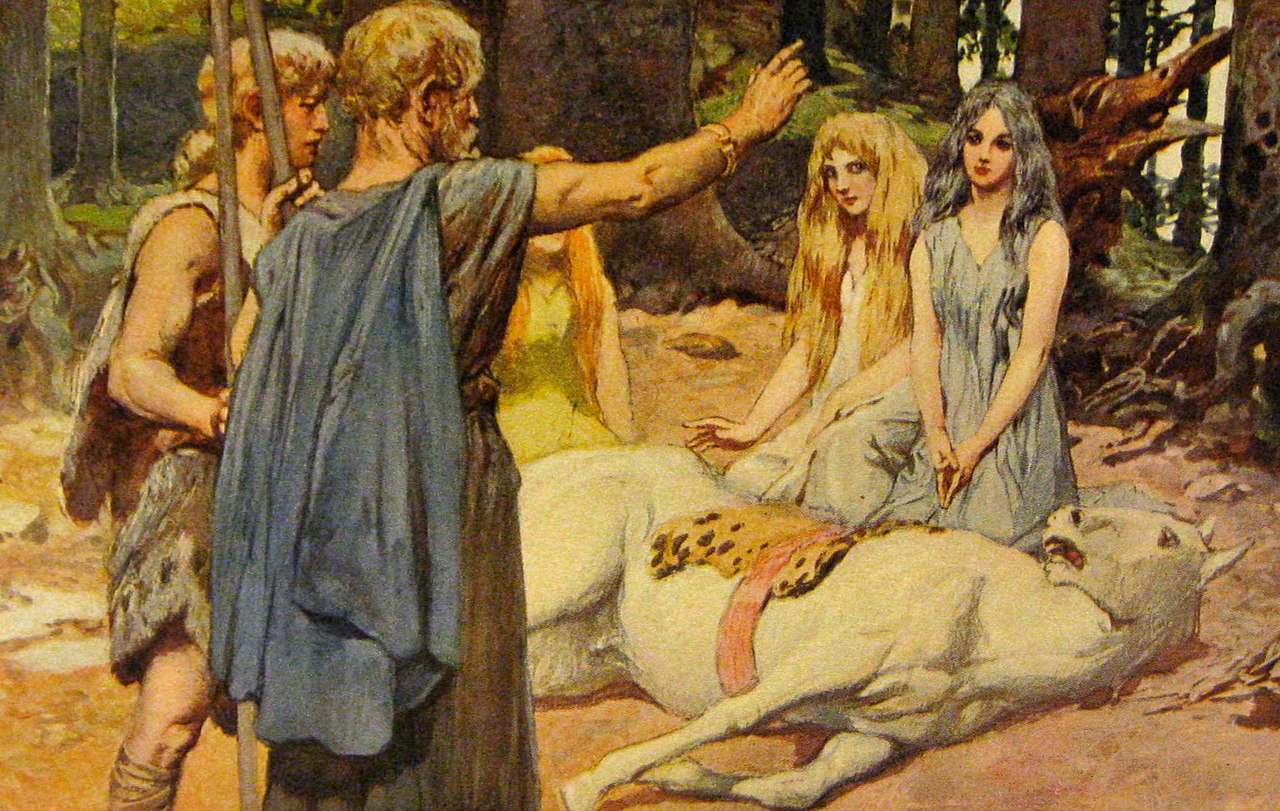The Norse goddess Fulla (sometimes referred to as Volla of Folla) is the goddess of secrets. According to the Prose Edda, Fulla is one of Frigg's many handmaids in charge of her footwear and guard all of her secrets.
Much like many of the Ásynjur goddesses in Asgard, there is little known about Fulla. She makes a brief appearance in the old Poetic Edda, but Snorri Sturluson expands upon her role in the Prose Edda. A few scholars argue that Fulla may have even been Frigg’s sister (as surmised in the Merseburg Incantations), which is why she trusts her with her secrets.
Some scholars translate the Prose Edda to imply that Fulla and Frigg were the same person; others feel that she was just one of her many handmaidens, and some believe that she had a much more significant role lost to time. The goddess of secrets proves to be quite the mystery.
What Does The Name Fulla Mean?
Some believe the Fulla translates to bountiful in Old Norse, but it can also translate in other Scandinavian dialects to fullness or plenitude. In the Old High German Merseburg Incantation, she is referred to as Volla, which also translates to plentitude.
While she’s is described as a goddess of secrets, the translation of her name suggests there may be more to her. John Lindow goes so far as to suggest that Fulla could perhaps be a goddess of fertility based solely on the translation of her name.

Was Fulla A Handmaiden To Frigg?
In the Prose Edda, Snorri Sturluson lists Fulla as one of Frigg’s handmaidens in Asgard.
Some of Frigg’s other handmaidens include:
These handmaidens were powerful Æsir goddesses in their own right. While other handmaidens, such as Hlin, had the power to protect those in danger and comfort the grieving, Fulla was a little different.
In Skaldic poetry and Nordic literature, Fulla was portrayed more often with the goddess Frigg than with the other handmaidens.
Fulla’s Attestations
In the Poetic Edda, Fulla is described as nothing more than a handmaiden to Frigg. However, her role changes as we move into more modern texts, like Snorri Sturluson’s Prose Edda and the Merseburg Incantations.
In the Prose Edda, Snorri Sturluson lists Fulla as one of the 16 Ásynjur goddesses in the Gylfaginning and then later mentions Fulla as a recipient of the gifts Nanna and Baldr send the Asgardian gods from Hel. However, Fulla’s most highly debated attestation doesn’t lie in the Prose Edda but in the Merseburg Incantations.
The Merseburg Incantations tells how Baldr’s horse sprained his foot and details the magic spell used to heal the injured horse. To heal the horse, Frigg, her sister Volla (aka Fulla), Sinthgunt, and her sister Sunna chanted.
This chant is the begging of the scholarly divide in the great debate on Fulla’s importance. While Snorri suggests she is a handmaiden to Frigg, the Merseburg Incantations suggests that Fulla was Frigg’s sister.

